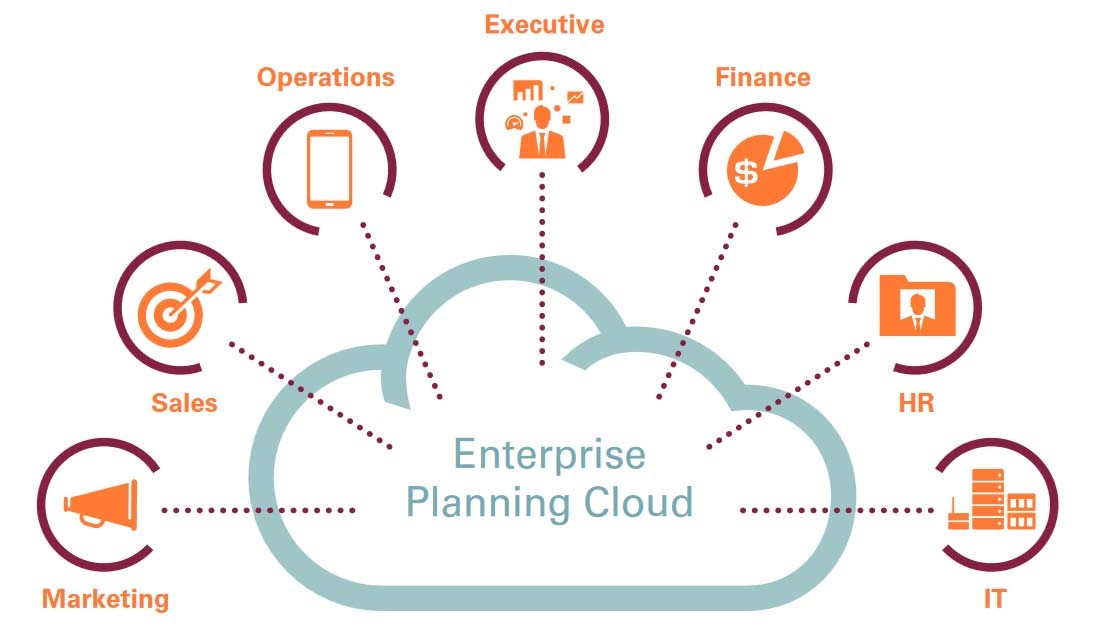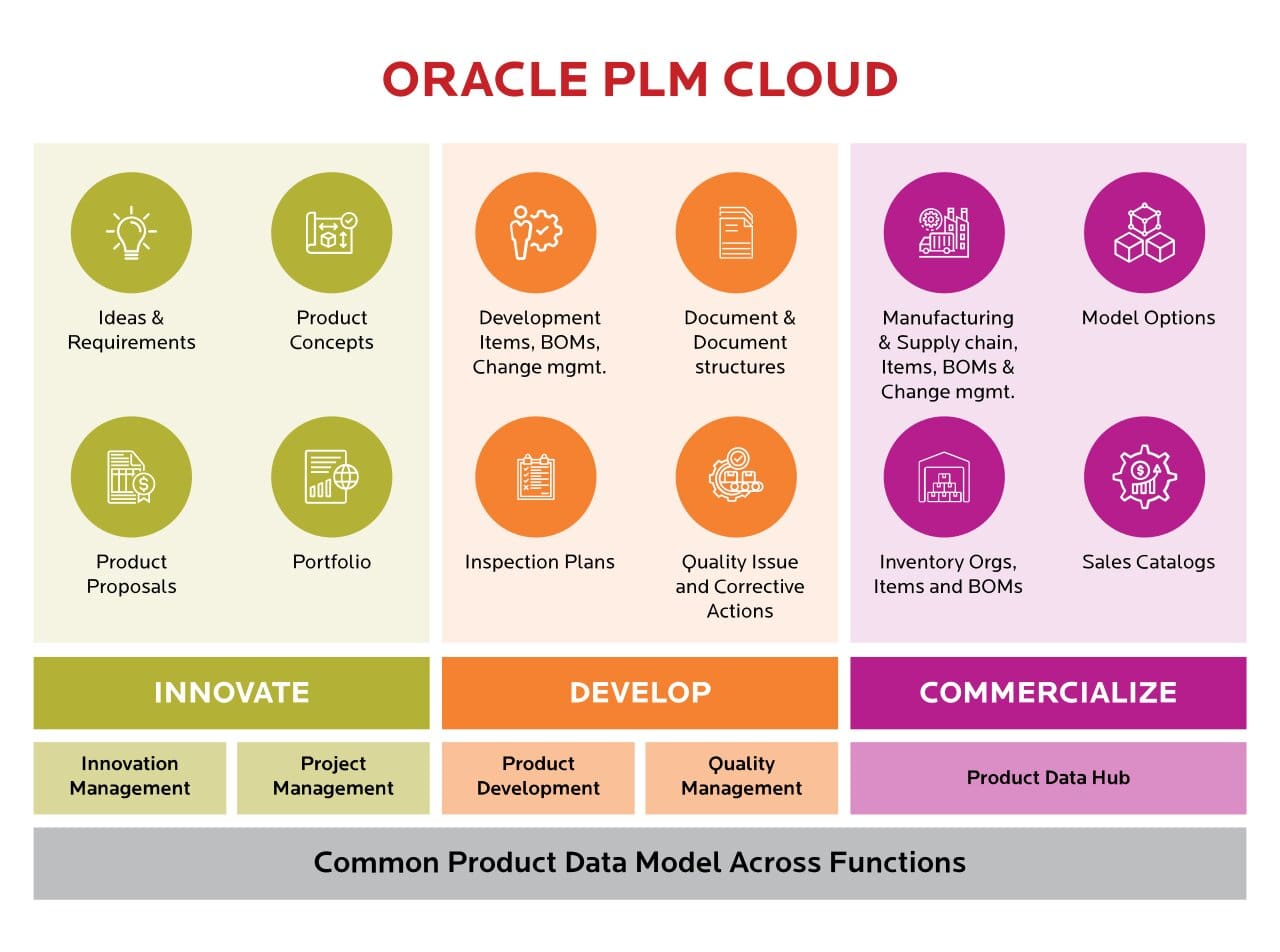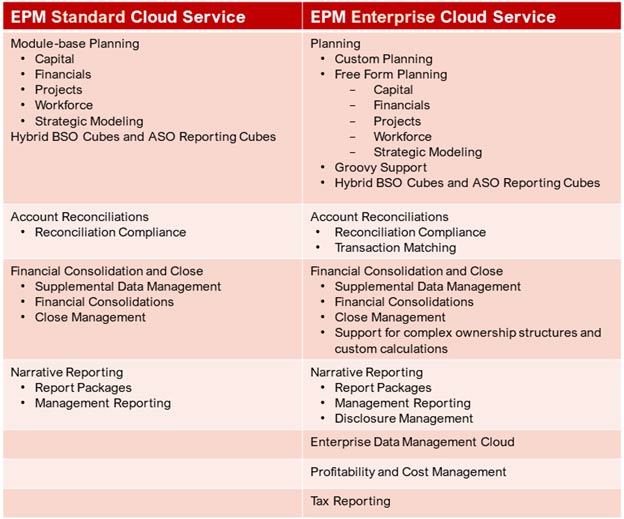The Role of Oracle Cloud Management Tools in Streamlining Operations
Oracle Cloud Management Tools are essential solutions for organizations looking to manage their cloud resources efficiently. These tools facilitate centralized management, cost optimization, and performance monitoring, ensuring seamless cloud operations. By automating routine tasks, Oracle Cloud Management Tools enable IT teams to focus on strategic initiatives, driving innovation and growth.
Exploring Key Oracle Cloud Management Solutions
Oracle Cloud Management Tools offer a range of solutions tailored to meet the diverse needs of organizations. Oracle Cloud Manager, Oracle Enterprise Manager, and Oracle Cloud Infrastructure Console are three prominent tools that empower businesses to manage their cloud resources effectively.
Oracle Cloud Manager simplifies the deployment, management, and migration of workloads across on-premises and cloud environments. With its intuitive user interface, organizations can automate routine tasks, streamline operations, and ensure consistent performance. Oracle Cloud Manager also supports various deployment models, including multi-cloud and hybrid cloud, providing flexibility and scalability to businesses.
Oracle Enterprise Manager, on the other hand, is a comprehensive solution for managing Oracle environments, both on-premises and in the cloud. It provides centralized management, enabling organizations to monitor and optimize their entire IT infrastructure from a single platform. Oracle Enterprise Manager offers features such as configuration management, performance monitoring, and automated patching, ensuring that businesses maintain a secure, high-performing, and cost-efficient infrastructure.
Oracle Cloud Infrastructure Console is a web-based interface that allows users to manage their cloud resources easily. It provides a unified view of the entire cloud infrastructure, enabling organizations to create, manage, and monitor resources with ease. Oracle Cloud Infrastructure Console supports various features, including identity and access management, networking, and storage, making it a versatile tool for managing cloud resources.
How to Implement Oracle Cloud Management Tools Effectively
Implementing Oracle Cloud Management Tools requires a strategic approach to ensure seamless integration and optimal performance. Here’s a step-by-step guide to help you get started:
Assess your current infrastructure: Begin by evaluating your existing IT infrastructure, including hardware, software, and cloud resources. Identify areas that can benefit from Oracle Cloud Management Tools and determine the specific tools required to address your needs.
Set up the tools: Once you have identified the tools needed, proceed with the installation and configuration process. Oracle provides detailed documentation and guidelines to assist you in setting up the tools correctly. Ensure that you follow the best practices to avoid potential issues during the setup process.
Integrate with existing systems: Oracle Cloud Management Tools can be integrated with various systems, including on-premises infrastructure, cloud environments, and third-party tools. Leverage APIs and other integration methods to ensure a smooth transition and maintain consistent performance across all systems.
Train your team: Provide comprehensive training to your IT team on using Oracle Cloud Management Tools. Ensure that they understand the features, capabilities, and best practices associated with each tool. This will help you maximize the potential of the tools and ensure a smooth operation.
Monitor and optimize: Continuously monitor the performance of your Oracle Cloud Management Tools and optimize them as needed. Leverage the real-time insights and historical data analysis provided by the tools to identify areas for improvement and make data-driven decisions.
Maximizing Cost Efficiency with Oracle Cloud Management Tools
Oracle Cloud Management Tools offer numerous features to help organizations save costs and optimize resource utilization. By implementing these tools, businesses can achieve significant cost savings through resource optimization, automated scaling, and usage analysis.
Resource optimization: Oracle Cloud Management Tools provide insights into resource utilization, enabling organizations to identify underutilized or idle resources. By decommissioning unnecessary resources, businesses can reduce their cloud expenditure and allocate resources more efficiently.
Automated scaling: Oracle Cloud Management Tools support automated scaling, allowing businesses to scale their resources up or down based on demand. This ensures that resources are always optimized, preventing overprovisioning and minimizing costs.
Usage analysis: Oracle Cloud Management Tools offer detailed usage analysis, providing businesses with a clear understanding of their cloud expenditure. By analyzing usage patterns, organizations can identify cost-saving opportunities and make data-driven decisions to optimize their cloud spending.
In addition to these features, Oracle Cloud Management Tools also provide cost estimation and forecasting capabilities, enabling businesses to plan their cloud expenditure more effectively. By leveraging these tools, organizations can significantly reduce their cloud costs and improve their overall financial performance.
Improving Performance Monitoring with Oracle Cloud Management Tools
Oracle Cloud Management Tools offer robust performance monitoring capabilities, enabling organizations to proactively manage their cloud resources and ensure optimal performance. These tools provide real-time insights, custom alerts, and historical data analysis, empowering businesses to make data-driven decisions and maintain a high-performing cloud infrastructure.
Real-time insights: Oracle Cloud Management Tools offer real-time insights into the performance of cloud resources, including CPU usage, memory consumption, and network latency. This enables organizations to quickly identify and address performance issues, minimizing downtime and ensuring a seamless user experience.
Custom alerts: Oracle Cloud Management Tools allow businesses to configure custom alerts based on specific performance metrics. This proactive approach enables organizations to address potential issues before they impact users, ensuring consistent performance and reliability.
Historical data analysis: Oracle Cloud Management Tools provide historical data analysis, enabling businesses to identify performance trends and make data-driven decisions. By analyzing historical data, organizations can optimize their cloud infrastructure, allocate resources more efficiently, and plan for future growth.
In addition to these features, Oracle Cloud Management Tools also support integration with various monitoring and alerting systems, enabling businesses to centralize their performance monitoring and management efforts. By leveraging these tools, organizations can ensure optimal performance, minimize downtime, and maintain a high-quality user experience.
Oracle Cloud Manager vs. Oracle Enterprise Manager: A Comparative Analysis
Oracle Cloud Manager and Oracle Enterprise Manager are two powerful Oracle Cloud Management Tools that offer unique features and capabilities. Understanding their differences and similarities can help organizations determine which tool is best suited for their specific needs. Here’s a comparative analysis of Oracle Cloud Manager and Oracle Enterprise Manager.
Oracle Cloud Manager: Oracle Cloud Manager is a cloud-based management platform that simplifies the deployment, management, and migration of workloads across on-premises and cloud environments. It offers features such as automated provisioning, policy-based governance, and integrated monitoring, making it an ideal choice for organizations looking to manage their cloud resources in a centralized and efficient manner.
Oracle Enterprise Manager: Oracle Enterprise Manager is a comprehensive on-premises management platform that offers centralized management for Oracle environments, both on-premises and in the cloud. It provides features such as configuration management, performance monitoring, and automated patching, making it an ideal choice for organizations looking to manage their Oracle infrastructure in a unified and efficient manner.
Features and Capabilities: Both Oracle Cloud Manager and Oracle Enterprise Manager offer robust features and capabilities. Oracle Cloud Manager excels in cloud-based management, automation, and policy-based governance, while Oracle Enterprise Manager excels in on-premises management, configuration management, and automated patching. User reviews suggest that Oracle Cloud Manager is well-suited for organizations looking to manage their cloud resources, while Oracle Enterprise Manager is well-suited for organizations looking to manage their on-premises Oracle infrastructure.
Use Cases: Oracle Cloud Manager is best suited for organizations looking to manage their cloud resources in a centralized and automated manner. It is particularly useful for organizations looking to migrate workloads to the cloud, automate provisioning, and implement policy-based governance. Oracle Enterprise Manager, on the other hand, is best suited for organizations looking to manage their on-premises Oracle infrastructure in a unified and efficient manner. It is particularly useful for organizations looking to manage configurations, automate patching, and monitor performance.
Real-Life Success Stories: Oracle Cloud Management Tools in Action
Oracle Cloud Management Tools have helped numerous organizations streamline their cloud operations and achieve their business objectives. Here are some success stories that highlight the potential of these tools.
Global Manufacturing Company: A global manufacturing company used Oracle Cloud Manager to automate the deployment and management of their cloud resources. By implementing Oracle Cloud Manager, the company was able to reduce their deployment time by 50%, improve their resource utilization by 30%, and reduce their operational costs by 20%. The company’s IT team was able to focus on strategic initiatives instead of routine tasks, leading to increased innovation and productivity.
Leading Financial Institution: A leading financial institution used Oracle Enterprise Manager to manage their on-premises Oracle infrastructure. By implementing Oracle Enterprise Manager, the institution was able to automate their patching process, reducing their downtime by 30% and improving their system availability. The institution’s IT team was able to proactively identify and address performance issues, ensuring a high-quality user experience for their customers.
Fast-Growing E-commerce Company: A fast-growing e-commerce company used Oracle Cloud Infrastructure Console to manage their cloud resources. By implementing Oracle Cloud Infrastructure Console, the company was able to optimize their resource utilization, reducing their cloud costs by 40%. The company’s IT team was able to monitor their cloud resources in real-time, ensuring optimal performance and reliability.
These success stories demonstrate the potential of Oracle Cloud Management Tools to help organizations streamline their cloud operations, reduce costs, and improve performance. By leveraging these tools, organizations can focus on strategic initiatives, drive innovation, and achieve their business objectives.
Navigating the Future of Cloud Management with Oracle
The future of cloud management is poised for significant changes, and Oracle Cloud Management Tools are well-positioned to adapt and evolve to meet the changing demands of the industry. Here are some future trends in cloud management and how Oracle Cloud Management Tools are prepared to address them.
Multi-cloud Management: As organizations adopt multiple cloud platforms, managing these resources efficiently becomes increasingly complex. Oracle Cloud Management Tools offer multi-cloud management capabilities, enabling organizations to manage their cloud resources across multiple platforms in a unified and efficient manner.
Artificial Intelligence and Machine Learning: Artificial Intelligence (AI) and Machine Learning (ML) are becoming increasingly important in cloud management, offering predictive analytics, automated remediation, and intelligent recommendations. Oracle Cloud Management Tools incorporate AI and ML capabilities, enabling organizations to proactively identify and address potential issues before they impact their cloud operations.
Automation: Automation is key to efficient cloud management, reducing manual tasks, and minimizing human errors. Oracle Cloud Management Tools offer robust automation capabilities, enabling organizations to automate routine tasks, streamline their cloud operations, and reduce their operational costs.
Security and Compliance: Security and compliance are critical in cloud management, and Oracle Cloud Management Tools offer robust security and compliance features, enabling organizations to protect their cloud resources and meet regulatory requirements. Oracle Cloud Management Tools support various security standards, including SOC 1, SOC 2, ISO 27001, and PCI DSS, ensuring that organizations can maintain a secure and compliant cloud infrastructure.
In conclusion, Oracle Cloud Management Tools offer numerous features and capabilities to help organizations streamline their cloud operations, reduce costs, improve performance, and ensure security and compliance. As the cloud management landscape continues to evolve, Oracle Cloud Management Tools are poised to adapt and evolve to meet the changing demands of the industry, providing organizations with the tools they need to manage their cloud resources efficiently and effectively.





